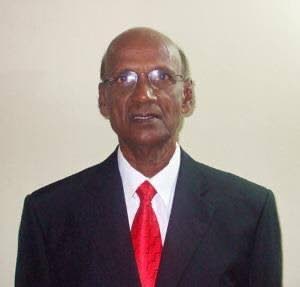How democratic is our democracy?

THE EDITOR: The heated wrangling re the local government elections on both sides of the divide compels the insightful to pause and consider how really “democratic" the process is. An Al Jazeera’s news item, “Democracy/Maybe,” is instructive for it throws skepticism on this process as “government for the people, by the people” which locates the people at the forefront of governance with their elected leaders being their servants.
In practice, however, the roles seem reversed with leaders calling the shots with little concern for the voice of the people, only theirs, never to be contradicted. Brutus, seeking to justify his participation in the plot against the creeping dictatorship of Caesar in Shakespeare’s political masterpiece Julius Caesar, would amply summarise this reversal of roles:
…But ’tis common proof
That lowliness is young ambition’s ladder,
Whereto the climber upwards turns his face;
But when he once attains the utmost round
He then unto the ladder turns his back.
Looks into the clouds, scorning the base degrees
By which he did ascend
(Act 2 Sc121-27)
But how does it come to this? Earlier Brutus would note the euphoria of the people as Caesar entered triumphantly into the Capitol but Casca in response would cynically remark that “if Caesar had stabb’d their mothers they would smile," pointing to their inability to see through the mock humility of Caesar in appearing to refuse the crown when it was offered to him when he "fain would have had it (240).”
Why this unquestioning loyalty? It seems as if the ordinary people in their simple-mindedness are carried away by the glitter and glamour of the moment and are blind to the “vaulting ambition” (see Macbeth Act 1 Sc7 27) of Caesar, which is more apparent to those with the insight to see through his true motives.
Not that all the conspirators were honourable in their own motives for killing Caesar. Only Brutus was, for as he says to Cassius, "...I love the name of honour more than I fear death.” But whatever the mix of intentions of the conspirators the pattern in the politics is clear in the play. It is a struggle for power for those in a position to wrest it and the pathway to that power is the common people whose backs these aspirants to power ride, using them as ladders “to gain the utmost round,” but heaping scorn on them once that objective is achieved.
So many “democracies” in the world fit this bill, like Sudan and Niger currently in Africa, Manipur and Myanmar in India and environs, Venezuela in the West and even in the US where the Bidens seem to tower over all allegations against them. And even in Canada where for Trudeau protest is only acceptable if it is not against the government, as with the truckers. How do we fit in here in TT?
Is the pattern any different, with the leadership on both sides of the divide, their time long past, but in their greed for power continuing to seek it for its own sake, with the country, evidentially in ruins in virtually every aspect of its existence, and encouraged in their quest, in defiance of all logic and good sense, moral or ethical consideration and now with a kind of seasoned shamelessness, by a tradition of ethnic voting in which the tribe, no different from the “rabblement" (246) deifying Caesar blind to his greed for power, asking no questions of their own power-hungry leaders in the hope for a “mess of pottage” and assuring in the process their political longevity? As usual I leave the answer to you.
In taking a cursory glance at a meeting of one of our political parties it was amazing to watch the predictable pattern of a fawning tribe, in the fashion of the citizens of Rome for the dictatorial Caesar, demonstrating such adulation for their leaders, who from the evidence have done so little to improve their lives.
But where ignorance is bliss ’tis folly to be insightful.
DR ERROL NARINE BENJAMIN
via e-mail


Comments
"How democratic is our democracy?"